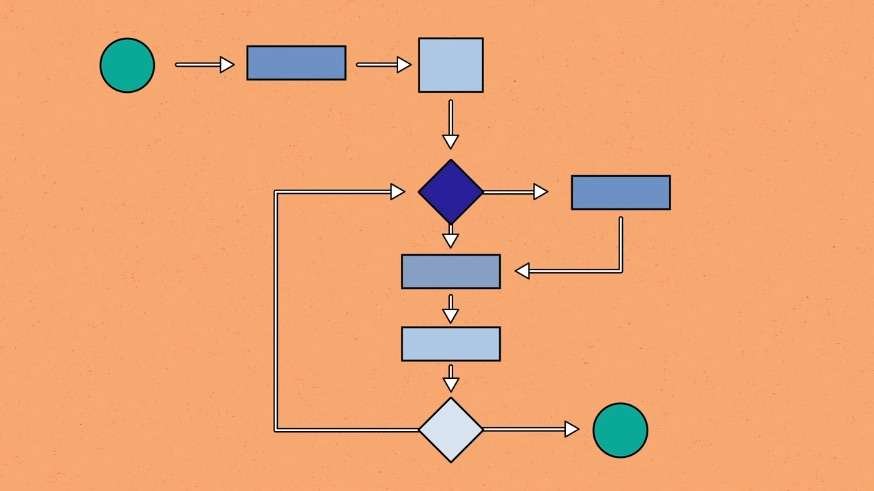Understanding the Basics of Artificial Intelligence
Introduction to Intelligence
Defining Artificial Intelligence
Artificial intelligence (AI) is a concept that has received a lot of attention recently. Artificial intelligence (AI) is the ability of machines and computer systems to perform tasks that would normally require human intelligence. AI, from a technical standpoint, entails the creation and implementation of algorithms and models that enable machines to exhibit intelligent behavior. AI differs from human intelligence in that it focuses on specific tasks or domains rather than replicating the entire spectrum of human cognitive abilities.
The History of Artificial Intelligence
The inception of AI can be traced back to the 1950s when researchers began exploring the idea of creating machines capable of exhibiting intelligent behavior. Over the years, several key milestones have marked the development of AI, such as the introduction of expert systems in the 1970s and the emergence of machine learning algorithms in the 1980s. Prominent figures in the field of AI include Alan Turing, often regarded as the father of computer science.

and John McCarthy, who coined the term “artificial intelligence.”

Real-World Applications of Artificial Intelligence
AI has found its way into various industries and sectors, revolutionizing the way we live and work. In healthcare, AI is being used to improve diagnostics, predict disease outbreaks, and assist in drug discovery. Transportation and logistics have also benefited from AI, with applications ranging from autonomous vehicles to route optimization algorithms. Moreover, AI plays a crucial role in enhancing customer experiences, enabling personalized recommendations, chatbots, and sentiment analysis.
Types of Artificial Intelligence
- Narrow/Weak AI
- General/Strong AI
Narrow/Weak AI
Narrow or weak AI refers to AI systems that are designed to perform a specific task or function. These systems excel in their designated domain but lack the broader cognitive abilities associated with human intelligence.
Examples of narrow AI include virtual assistants like Apple’s Siri or Amazon’s Alexa, which can understand and respond to voice commands, but their capabilities are limited to specific tasks. However, narrow AI possesses limitations and challenges, such as the inability to generalize knowledge or lack adaptability to new contexts.
General/Strong AI
General or strong AI aims to develop machines that possess human-level intelligence across a wide range of tasks and domains. The concept of human-level intelligence refers to machines that can understand, learn, and apply knowledge in the same way humans do. Achieving general AI raises ethical considerations and concerns, such as the potential for machines to surpass human cognitive abilities or the challenge of designing robust ethical frameworks to guide the behavior of such intelligent systems.
Machine Learning and Deep Learning
Machine Learning (ML) is a subset of AI that focuses on enabling machines to learn from data and improve their performance over time. ML algorithms can identify patterns in large datasets, make predictions, and automate decision-making processes.
Deep Learning (DL) is a specific approach within ML that utilizes artificial neural networks to simulate human brain functions and achieve high-level learning and pattern recognition. Applications and advancements in ML and DL are wide-ranging, from computer vision and natural language processing to autonomous systems and recommendation engines.
Key Components of Artificial Intelligence
- Data
- Algorithms
- Computing Power and Infrastructure
Data:
Data holds immense significance for AI systems, serving as the foundation for training and refining algorithms.

Different types and sources of data, such as structured and unstructured data, sensor data, or user-generated content, provide valuable insights for AI models. However, data preprocessing and cleansing are essential steps to ensure that AI outcomes are accurate and reliable.
Algorithms:
Algorithms act as the brains behind AI systems, enabling them to process data, make decisions, and perform tasks. Popular AI algorithms include decision trees, support vector machines, and neural networks.

Each algorithm has its functionalities, strengths, and limitations. Ensuring fair and unbiased algorithms is crucial, as algorithmic biases can perpetuate societal inequalities or reinforce existing stereotypes.
Computing Power and Infrastructure
The capabilities of AI systems are heavily influenced by the computing power and infrastructure on which they are built. High-performance hardware, such as Graphics Processing Units (GPUs), enables faster data processing and model training. Moreover, the advent of cloud computing has revolutionized AI scalability, allowing organizations to harness the power of distributed computing and access resources on-demand.
Benefits and Challenges of Artificial Intelligence
Benefits of Artificial Intelligence:
AI offers numerous benefits across various industries. One of the significant advantages is enhanced efficiency and productivity. AI systems can automate repetitive and time-consuming tasks, freeing up human resources for more complex and strategic activities. Improved decision-making processes are another benefit, as AI algorithms can analyze vast amounts of data, identify patterns, and provide valuable insights. Additionally, AI has the potential to create new jobs and foster economic growth as industries embrace and leverage intelligent systems.

Ethical and Social Challenges:
While AI brings immense potential, it also presents ethical and social challenges. Privacy and data security concerns arise from the collection and usage of massive amounts of personal data. Algorithmic biases can lead to unfair or discriminatory outcomes, amplifying existing societal biases. Moreover, the potential job displacement caused by automation raises concerns about the impact on the workforce and broader societal implications of AI implementation.
Ensuring Responsible AI Development
To address the ethical challenges associated with AI, it is crucial to implement AI ethics frameworks that guide the development and deployment of AI systems. Transparency and explainability of AI systems are essential to build trust and ensure accountability. Collaborative efforts between policymakers, researchers, and industry stakeholders are necessary to strike a balance between innovation and the responsible use of AI technologies.
Summary and FAQs
* Artificial Intelligence encompasses the development of machines that exhibit intelligent behavior.
* Types of AI include narrow/weak AI, general/strong AI, and machine learning.
* Key components of AI are data, algorithms, and computing power.
* AI offers benefits such as enhanced efficiency, improved decision-making, and job creation.
* Ethical challenges include privacy concerns, biases, and potential societal implications.
Frequently Asked Questions:
1. What is the future of Artificial Intelligence?
The future of AI holds immense potential for innovation and transformation across industries. As technology advances, AI will likely continue to evolve, enabling more sophisticated and autonomous systems.
2. Are machines with General/Strong AI possible?
While the idea of machines possessing human-level intelligence is an ongoing pursuit, achieving true General/Strong AI remains a complex challenge. Researchers are constantly pushing boundaries, but significant advancements are needed to reach this milestone.
3. How can bias be addressed in AI algorithms?
Addressing biases in AI algorithms requires careful design, diverse and representative datasets, and continuous monitoring and evaluation. Ethical considerations and fairness should be embedded in the development process to ensure unbiased outcomes.
In conclusion, understanding the basics of artificial intelligence is crucial in today’s technologically driven world. From its definition to the historical development, real-world applications, and various types of AI, AI has the potential to reshape industries and society. The key components of AI, such as data, algorithms, and computing power, play vital roles in its functioning. While AI presents numerous benefits, ethical considerations and challenges should not be overlooked, with responsible AI development being the key to unlock its true potential.


